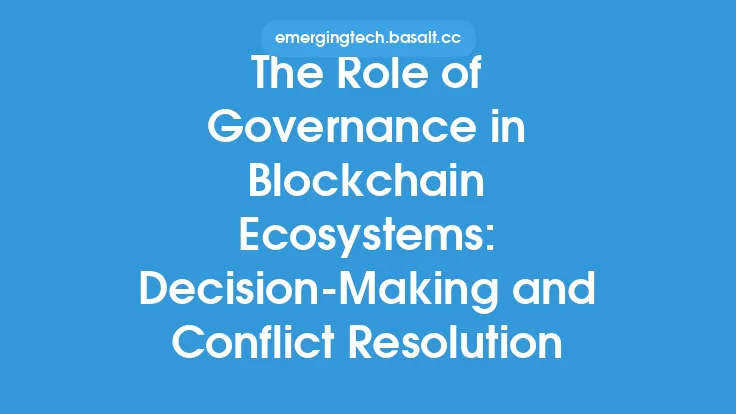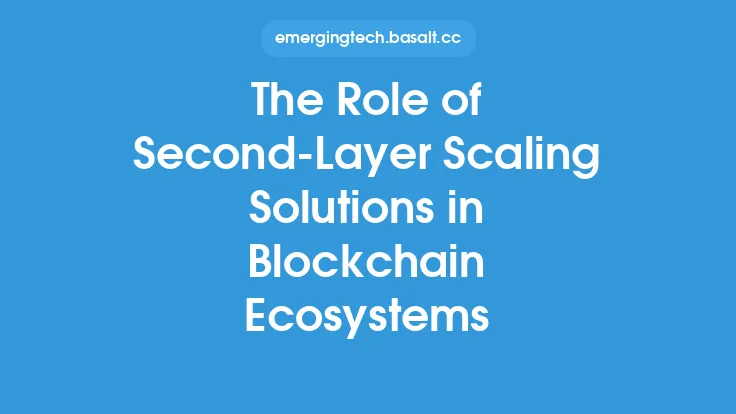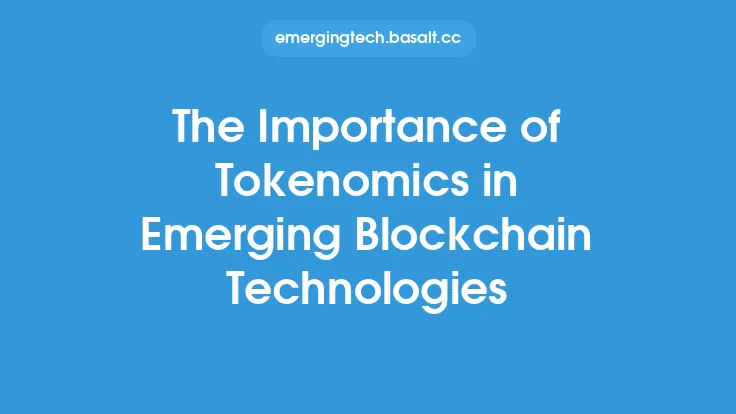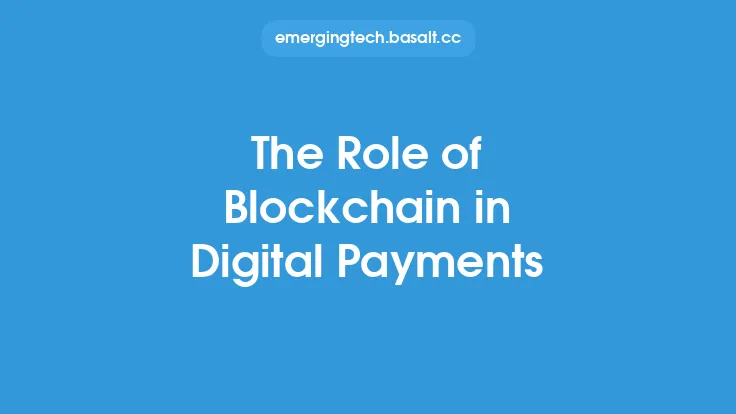The emergence of blockchain technology has revolutionized the way we think about trust, security, and automation in various industries. At the heart of this revolution are smart contracts, self-executing contracts with the terms of the agreement written directly into lines of code. These contracts have become a crucial component of blockchain ecosystems, enabling the creation of decentralized applications (dApps) that can operate without the need for intermediaries. In this article, we will delve into the role of smart contracts in blockchain ecosystems, exploring their functionality, benefits, and applications.
Functionality of Smart Contracts
Smart contracts are programs that run on a blockchain network, allowing for the automation of various processes and transactions. They are typically written in a programming language, such as Solidity or Vyper, and are compiled into bytecode that can be executed by the blockchain's virtual machine. The functionality of smart contracts can be broken down into several key components:
- Self-execution: Smart contracts can automatically execute the terms of an agreement when certain conditions are met, eliminating the need for intermediaries.
- Immutable: Once deployed, smart contracts are immutable, meaning that their code cannot be altered or deleted.
- Transparent: Smart contracts are typically open-source, allowing anyone to view and audit their code.
- Autonomous: Smart contracts can operate independently, without the need for human intervention.
Benefits of Smart Contracts
The use of smart contracts in blockchain ecosystems offers several benefits, including:
- Increased trust: Smart contracts can automate the execution of agreements, reducing the need for trust between parties.
- Improved security: Smart contracts are immutable and transparent, making it difficult for malicious actors to manipulate or alter their code.
- Enhanced efficiency: Smart contracts can automate various processes, reducing the need for manual intervention and increasing the speed of transactions.
- Reduced costs: Smart contracts can eliminate the need for intermediaries, reducing the costs associated with transactions and agreements.
Applications of Smart Contracts
Smart contracts have a wide range of applications across various industries, including:
- Supply chain management: Smart contracts can be used to automate the tracking and verification of goods, reducing the risk of counterfeiting and improving supply chain efficiency.
- Financial services: Smart contracts can be used to create decentralized financial instruments, such as lending platforms and prediction markets.
- Healthcare: Smart contracts can be used to securely store and manage medical records, as well as automate the execution of healthcare-related agreements.
- Voting systems: Smart contracts can be used to create secure and transparent voting systems, reducing the risk of tampering and improving the integrity of elections.
Integration with Other Blockchain Components
Smart contracts are often integrated with other blockchain components, such as:
- Decentralized data storage: Smart contracts can be used to store and manage data on decentralized storage solutions, such as InterPlanetary File System (IPFS).
- Oracles: Smart contracts can be used to interact with oracles, which provide external data to the blockchain network.
- Decentralized finance (DeFi) protocols: Smart contracts can be used to create DeFi protocols, such as lending platforms and stablecoins.
Challenges and Limitations
While smart contracts offer several benefits, they also pose some challenges and limitations, including:
- Scalability: Smart contracts can be limited by the scalability of the underlying blockchain network, which can lead to high transaction fees and slow execution times.
- Regulation: The regulatory environment for smart contracts is still evolving, and there is a need for clearer guidelines and standards.
- Security: Smart contracts can be vulnerable to security risks, such as reentrancy attacks and front-running attacks.
Conclusion
In conclusion, smart contracts play a vital role in blockchain ecosystems, enabling the creation of decentralized applications that can operate without the need for intermediaries. Their functionality, benefits, and applications make them an essential component of the blockchain ecosystem. However, there are also challenges and limitations that need to be addressed, such as scalability, regulation, and security. As the blockchain ecosystem continues to evolve, it is likely that smart contracts will play an increasingly important role in shaping the future of decentralized applications and services.





